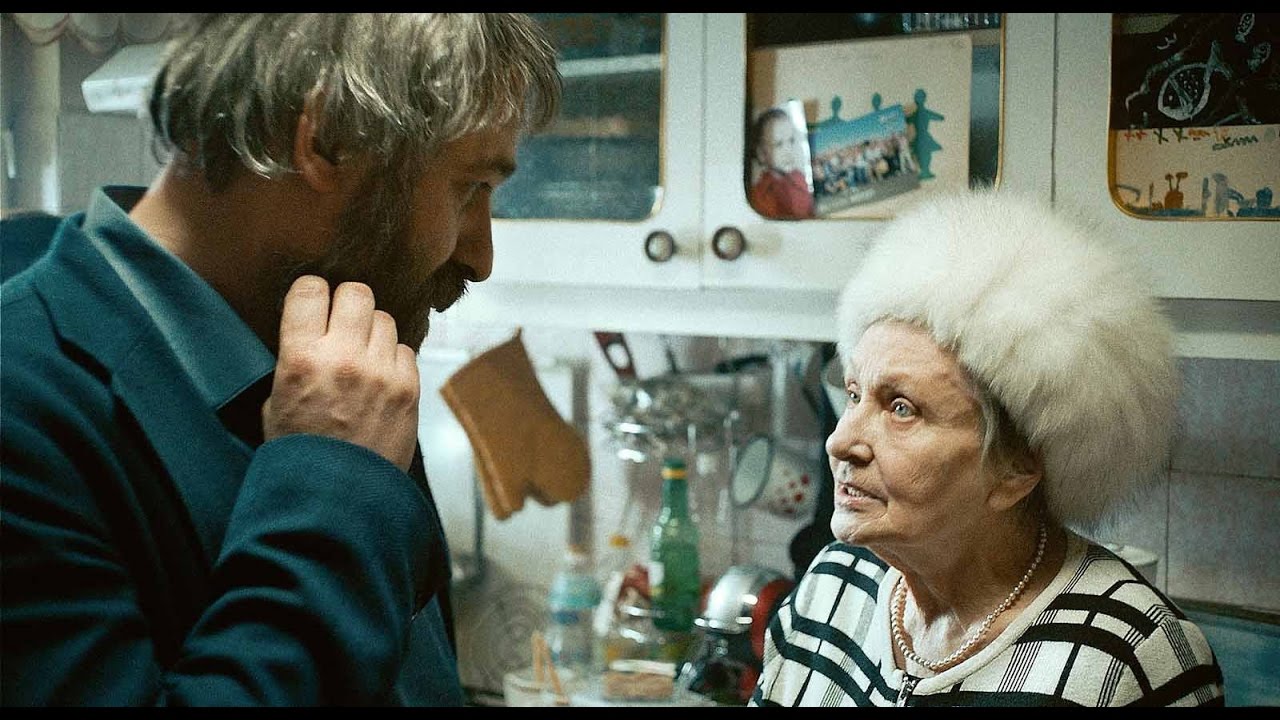Sieranevada is a chronicle of false starts and interruptions. Clocking in at nearly three hours and rarely venturing out of a single, cramped apartment, writer/director Cristi Puiu‘s ultra-realist epic of Romanian family dysfunction is simultaneously hilarious and insufferable, filled with complicated interpersonal back-stories, old grudges, and meals that can’t seem to get started. Someone’s always arriving, departing, getting into a political argument, or dredging up past offenses.
Sound familiar? Sieranevada plays like an absurdist version of many an off-screen family gathering. Though probably with significantly more chain-smoking in the kitchen.
Our protagonist is Lary (Mimi Branescu, who also appeared in Puiu’s 2005 breakthrough The Death of Mr. Lazarescu), a mild-mannered guy who gives off a bemused, long-suffering air — the shaggy referee of the family, always two seconds from bursting into laughter at everyone’s ludicrous behavior. We meet him and his wife stuck in Bucharest traffic, appropriately enough, bickering because he bought the wrong color dress for their daughter’s Disney-themed play. (“The Brothers Grimm never even said the color of the dress,” he argues. “The play includes Mulan. Did the Brothers Grimm write Mulan?” she counters.)
They’re headed to Lary’s mother’s apartment (Nusa, played by Dana Dagaru, another Mr. Lazarescu vet) to commemorate the death of his father Emil, 40 days prior. According to custom, the family will gather, a priest will sanctify things, and a symbolic suit will be passed on. In this way, the passage of Emil’s soul to heaven will be assured.
Things don’t go well.
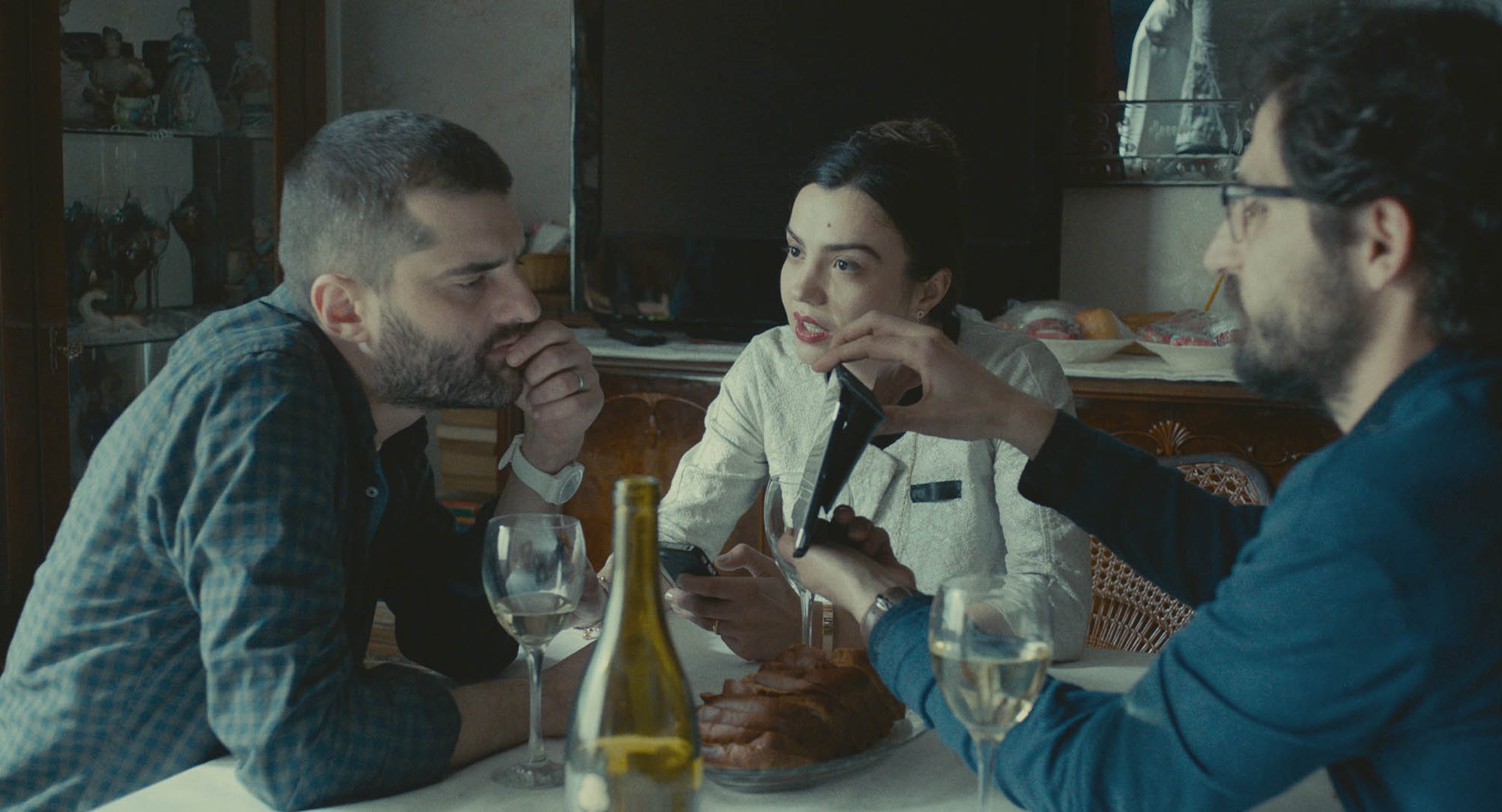
For starters, it’s been only three days since the Charlie Hebdo attacks, and a conspiracy theorist nephew with a laundry list of internet references wants to open everybody’s eyes to the various plots afoot. The communist grandma’s pride in the revolution butts up against the modern liberalism of Lary’s sister Sandra (Judith State). The priest is late, as usual. A rebellious niece arrives with a passed-out friend in tow, who spends the entire film in an adjacent room, occasionally vomiting. No one wants to wake up the baby.
And that’s all before Nusa’s blustering brother-in-law Tony shows up, despite having been told to stay away thanks to his recent philandering with the building manager’s wife.
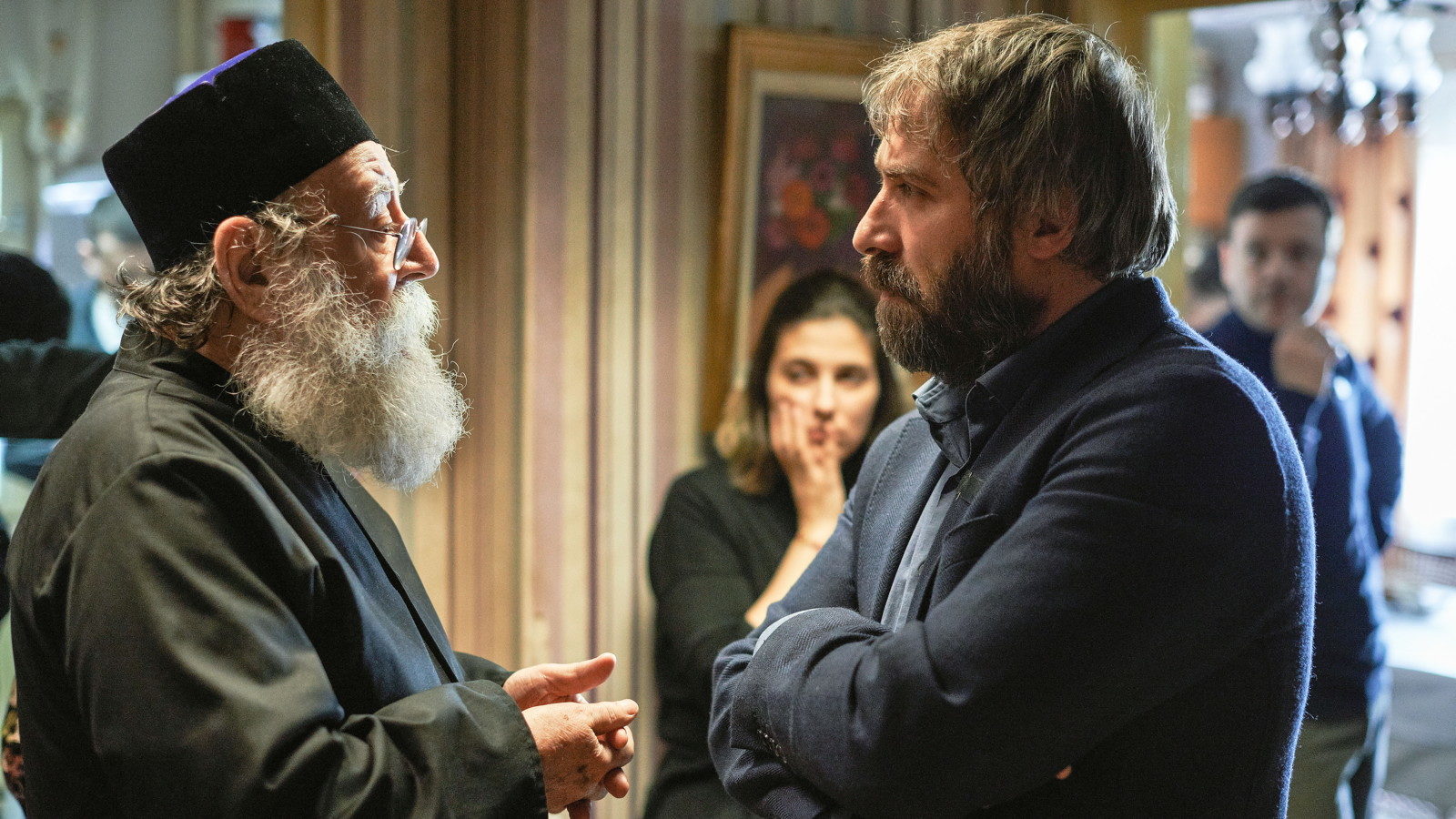
This narrative account could go on for, well, three hours. Puiu piles character on character, locking them into this small flat full of opening and closing doors. Sieranevada generates huge, stagy laughs from all these dynamics, as well as the kind of claustrophobia that only family can provide. The film’s insistent emphasis is on the quotidian and banal: one amusing sequence involves the stationary exercise bike that Lary, a doctor, has brought for his mother’s health, assembling it only to realize it needs a power adapter for the Romanian outlets. This is how things go here: the time spent on everything — bike assembly, food preparation, tailoring the ill-fitting suit so central to the ritual — is undone by something else.
Puiu plays his narrative like Bunuel in reverse: instead of a party one can’t leave, this is a gathering that can’t seem to get going.
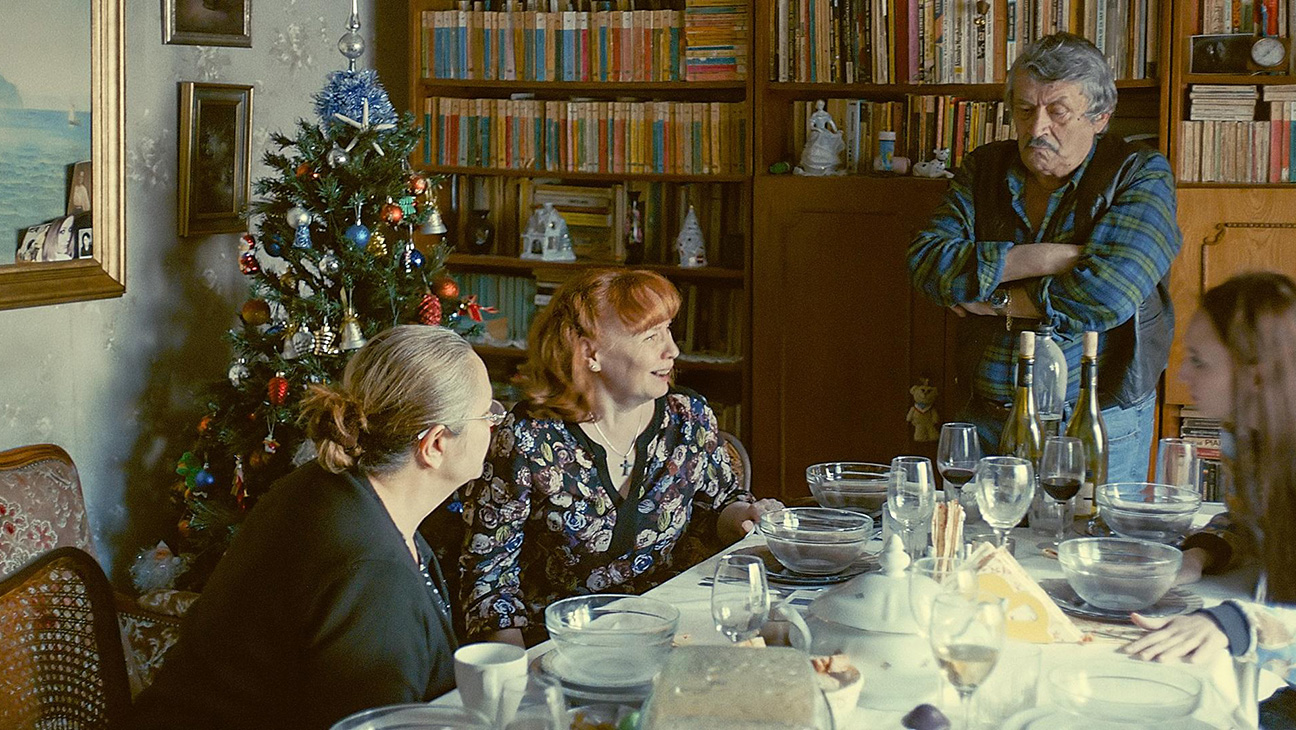
Along the way, Sieranevada makes offhand references to contemporary politics and Romanian history, embodied in the generational conflicts and things as simple as those goddamn power outlets. Relationships are discussed — as is Tony’s notorious blow-job, much to his children’s horror, at the would-be dinner table — and histories revealed.
Puiu and cinematographer Barbu Balasoiu emphasize those seemingly endless doors that open to include or shut to separate, but also the constant motion of people going nowhere, trying to keep things under control. The ceremonial aspect of the gathering is mirrored in other rituals: the setting, and un-setting, of the table, the pouring of drinks in lieu of food that seems like it’s probably never going to be served, the trip to the store for cigarettes, the smoking of cigarettes. (The characters in Sieranevada smoke a lot of cigarettes.)
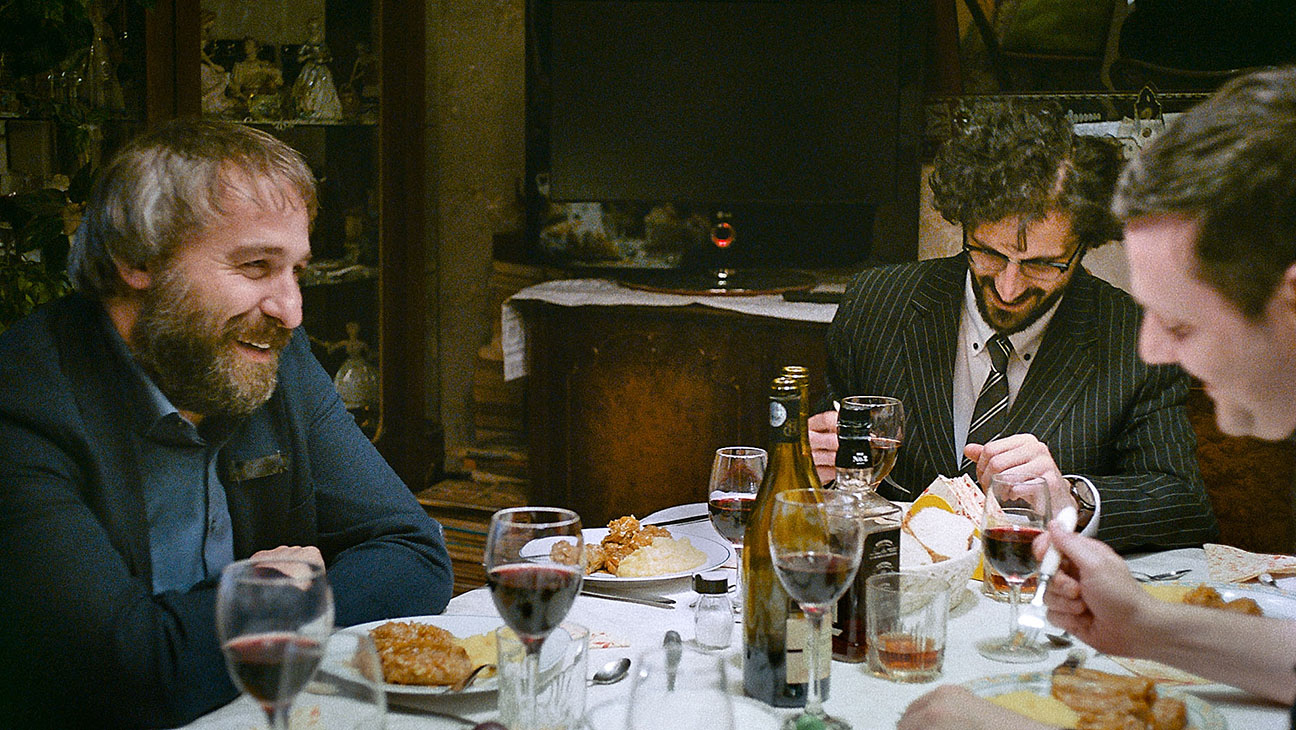
The one time we do leave the apartment, it comes as something of a relief (just as it would in real life). Of course, that outing is something of a catastrophe, too, so maybe it’s safer inside, with the devils you know.
Sieranevada takes its time going nowhere, and audiences unwilling to invest that time will likely find themselves frustrated. But if you have three hours to spend immersed in this world and its farcical trappings, Puiu’s latest is charming, in a maddening sort of way, and even revealing: about this family, this culture, and a Romania caught between eras.

